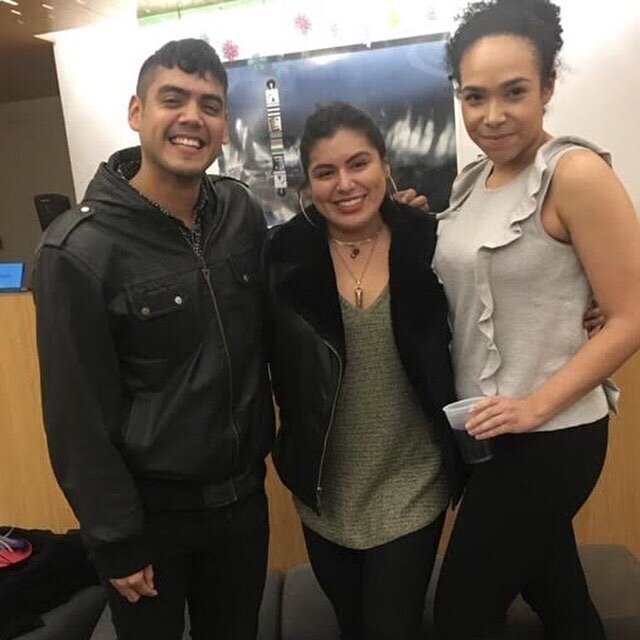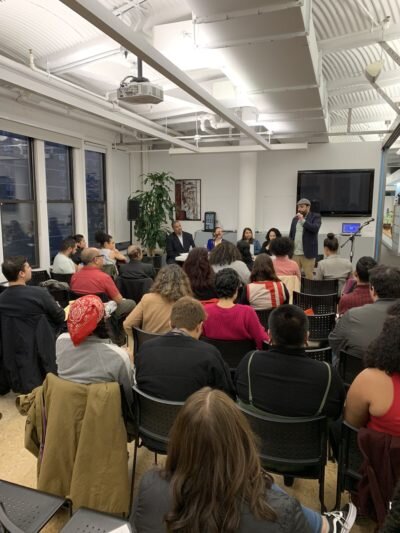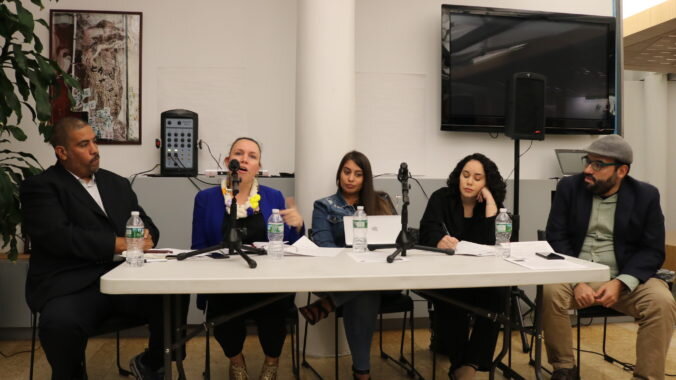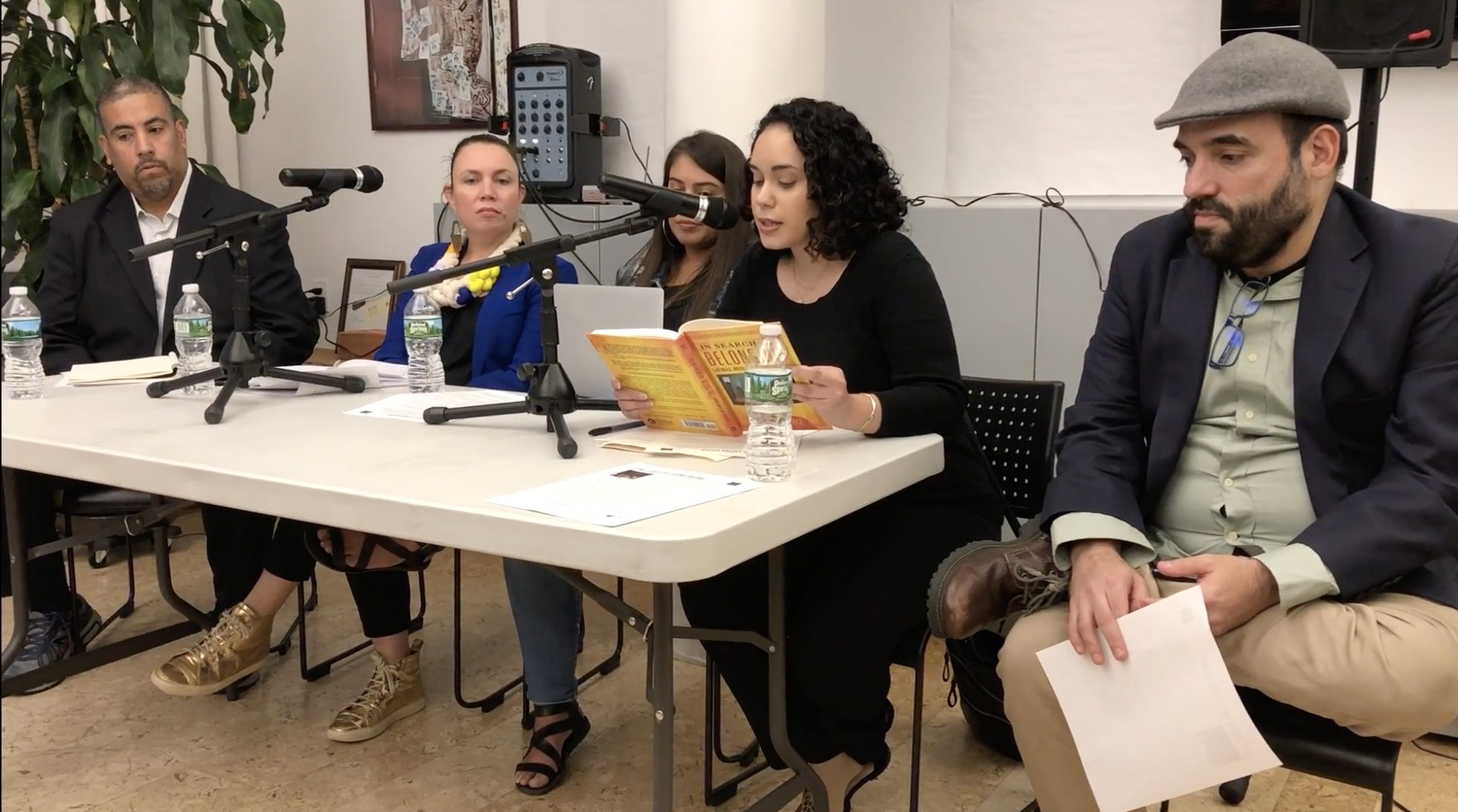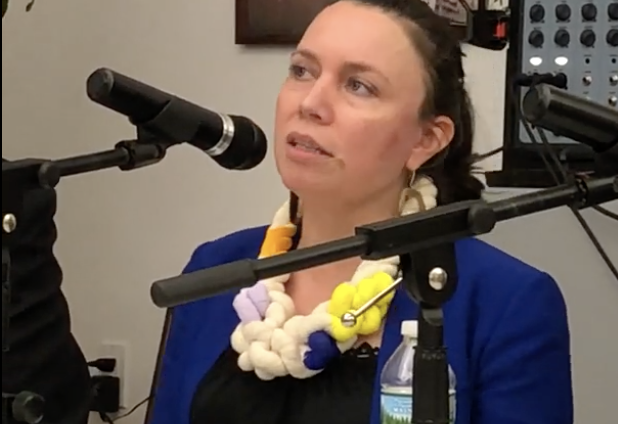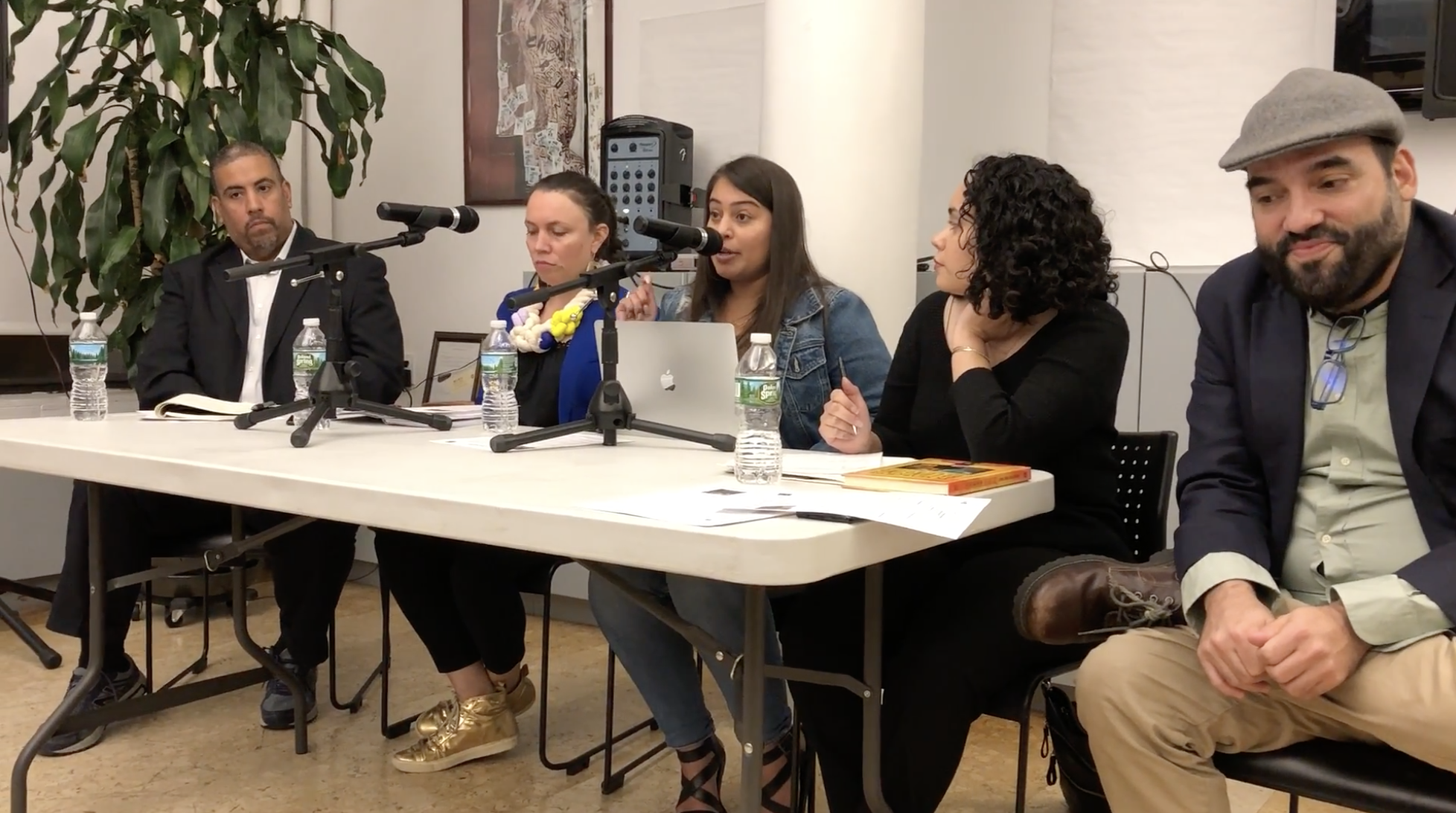A panel discussion about the latest insights on Latinx media featuring Jillian Báez, Raquel Reichard, Elizabeth Méndez Berry, and Joseph Torres moderated by Professor Urayoan Noel, professor of Spanish & Portuguese, at New York University. The conversation will touch on research, the state of cultural criticism, the newest on digital platforms, and the larger policies affecting net neutrality and media access, in addition to a focus on key strategies for engagement and activism for making change. This event was organized by The Latinx Project and co-sponsored by The Program in Culture and Media, and The MCC (Media, Culture and Communications Department).
There is no question that Latinx audiences are hungry for representation and relevant subject matter in media, but are the existing Latinx outlets doing their audiences justice? From Latino USA to Remezcla to Mitu to Univision to Bese, Latinx media platforms and content exist but are there enough? What are the key strategies for engagement, especially in regards to activism, that comes with the territory of creating Latinx media? As content creators- writers, activists, and critics- we want to discuss these important and timely issues.
Get ready for a dynamic discussion about the State of Latinx Media on Monday by learning about our panelists that include award-winning journalists, media activists, cultural critics, and professors! Here is a little about who they are, what they will discuss, and a few links to their work:
Professor Jillian Báez will discuss her new research on Latina audiences & matters of representation on and off camera. She recently published the book In Search of Belonging: Latinas, Media, and Citizenship.
Raquel Reichard is a widely published Latinx media content producer who has worked across platforms such as Latina, Mitú, Remezcla, Teen Vogue, and more. Here is her recent article highlighting Latina progressives running for office.
Elizabeth Mendez Berry will discuss critics of color and how they affect the evaluation of Latinx creatives. Read her piece Why Cultural Critics of Color Matter on Hyperallergic.
Net-neutrality and media activist Joseph Torres whose last book co-authored with Juan Gonzalez News for all the People gave a historical run down about race and the American media will discuss the latest in regards to media policy and what audiences can do through activism. Check out his article about the Kerner Commission- a report that “documented the media’s role in contributing to our nation’s racial divisions.”
The event was moderated by Urayoán Noel, a professor of English and Spanish, writer, critic, performer, translator, and intermedia artist.
Panelists
Jillian Báez is an Associate Professor at CSI at CUNY and specializes in Latina/o media, audience studies, transnational feminisms, and media literacy. Dr. Báez is the General Editor of Women’s Studies Quarterly. She is also the author of In Search of Belonging: Latinas, Media, and Citizenship.
Elizabeth Méndez Berry is a cultural critic and director of Voice, Creativity, and Culture, The Nathan Cummings Foundation.
Joseph Torres is an author, media activist and Senior Director of Strategy and Engagement at FREE Press.
Raquel Reichard is an award-winning, Orlando-based journalist and editor covering Latinx social justice, political and cultural issues.
Event Recap
At this panel, four experts from various media-related fields gave their take on the state of Latinx Media.
Recently tenured professor of media and culture at CUNY, Jillian Báez, opened our discussion by reading an excerpt from her book In Search of Belonging Latinas, Media and Citizenship where she discusses the iconic movie West Side Story as being instructional. Her family used it as a way to talk about the discrimination they faced as Puerto Ricans in the U.S. among many other things. She goes on to discuss how relevant representation is and how that even in the representation we do have, there are problems. In order to come to terms with all the issues, more research, analysis, and media literacy campaigns need to be done.
Raquel Reichard then gave her take on the current state of Latinx media as an advocacy journalist and Latina feminist. She stated that she doesn’t believe in objectivity and went on to say it’s not needed to create good journalism. “You can be upfront with your readers about your position and still write a fair and well-researched piece of journalism.” Her perspective as someone currently working in the field, trying to stay afloat while not compromising her integrity, was very interesting considering Latinx media platforms are dropping like flies.
Elizabeth Mendez Berry shared her experience as a music writer in the 2000s when music criticism was valued in the industry as well as beyond white readership. She has now pivoted to working in philanthropy, most recently for the Nathan Cummings Foundation, and is an ardent cultural critic advocate. “Critical thinking is important for artistic practice, and it’s also really important for democracy,” she said.
And lastly, net neutrality and free press advocate Joe Torres talked about his work strategizing to change the infrastructure and laws around media policy. Organizing to maintain net neutrality and mediate corporate interests in the media is essential even though he says the future looks bleak. “Transformation doesn’t always mean we get to see it,” he said, but that doesn’t mean our work is not valuable.
There was also some homework advice given to the audience about how to support Latinx media
Share articles you think are good.
Write messages to editors and tell them when you like or hate writers.
We need more media literacy for ethnic media, not just mainstream.
Donate to organizations doing work to keep the media fair.
There were so many other great things said, and we’re hoping to build on this conversation and look to solutions to build a better, more sustainable Latinx press.


